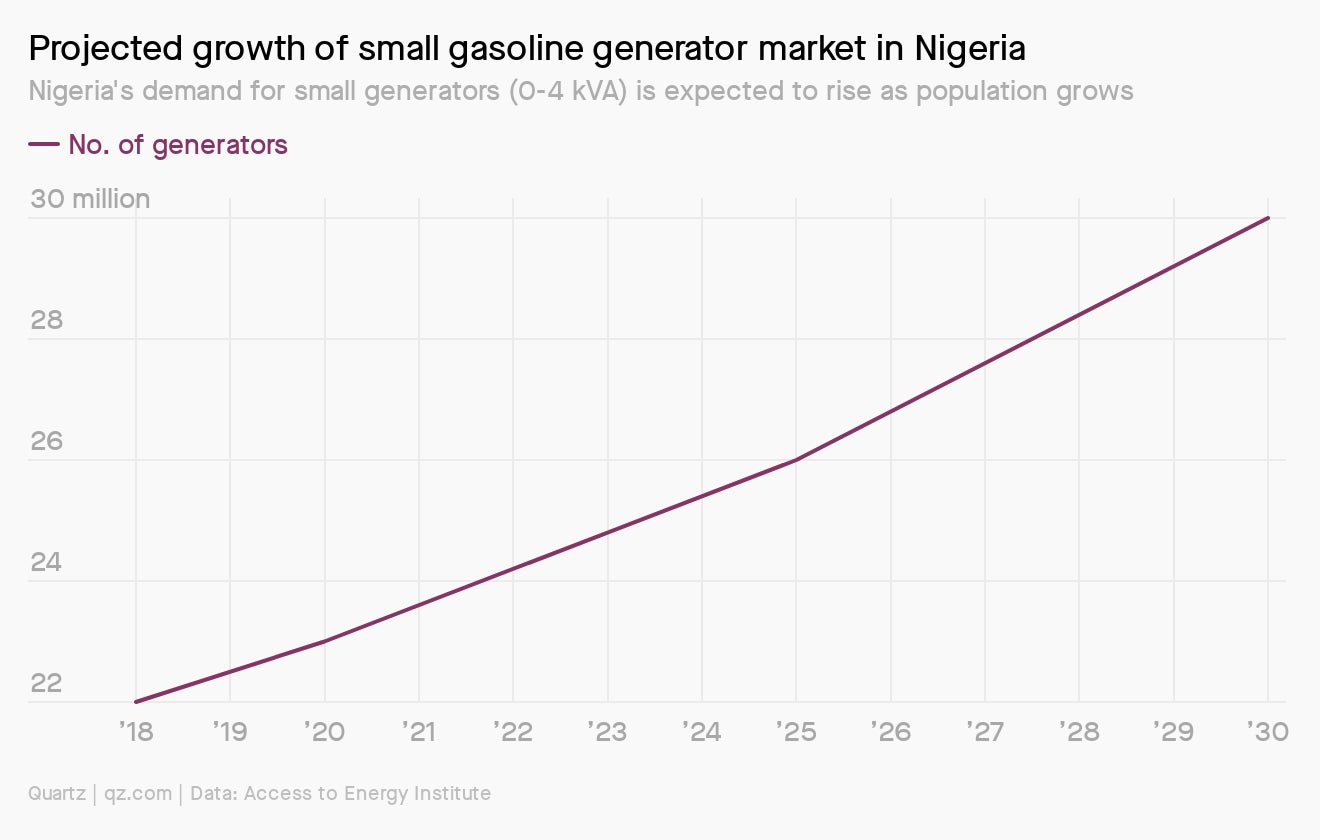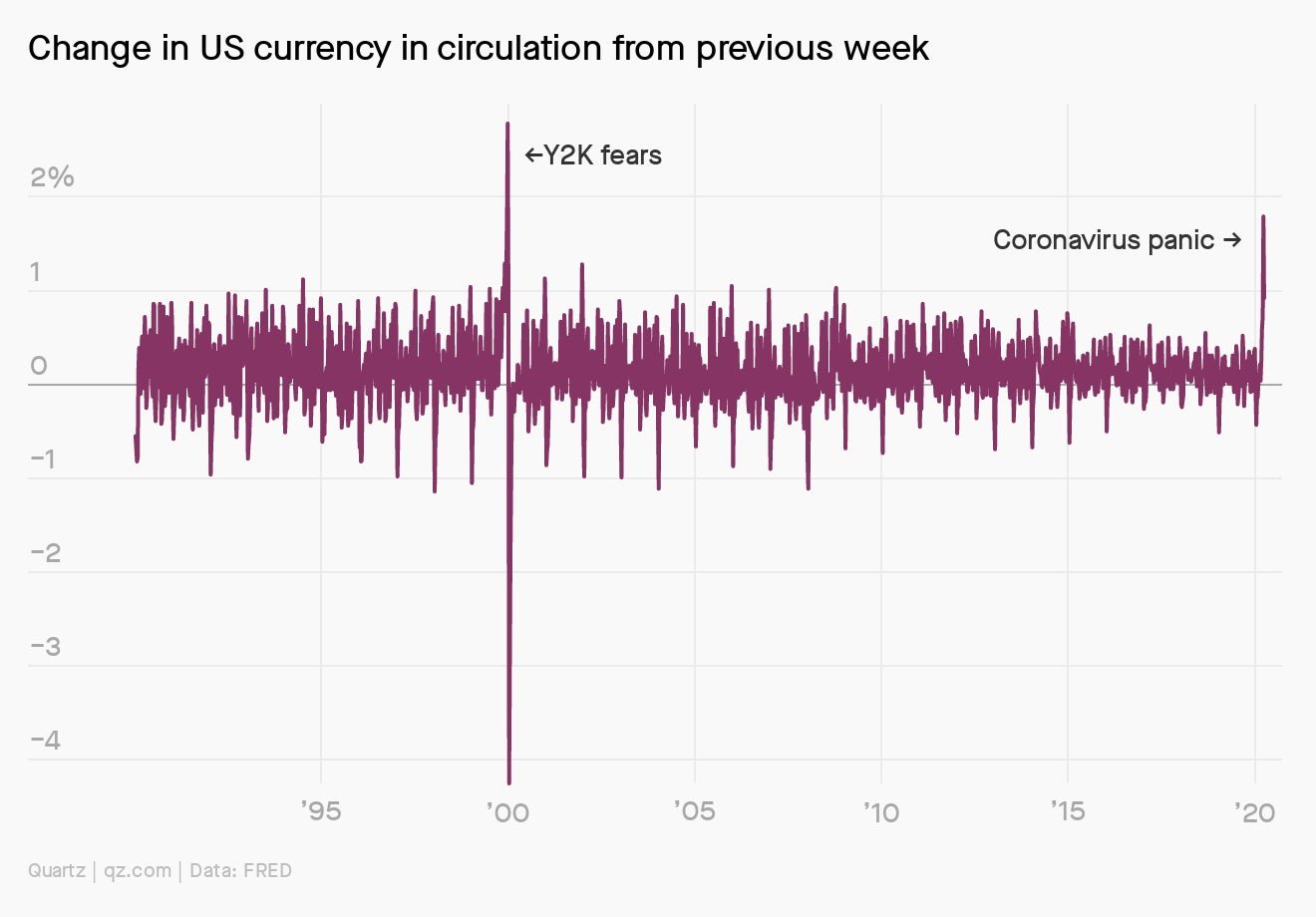Coronavirus: Where’s your head at?
Hello Quartz readers,

Hello Quartz readers,
Some moments in history are out-of-the-gate monumental and some are a slow burn. Coronavirus somehow feels like both? So we put an open question on qz.com this week: When did you realize this would change your life?
Here are some of our favorite responses thus far:
- “When the pandemic was officially ‘announced’ in my country, I was already in a life-changing season: I was 35 weeks pregnant. I realized that all my plans and expectations for bringing new life in this world would be drastically different.”
- “When my mom told me I couldn’t come visit her. I hadn’t asked but she preemptively said I couldn’t come over. As my mom is usually trying to get me to come over, this was a bizarre development.”
- “Yesterday I watched as my 2-year-old and 5-year-old instinctively kept six feet from our neighbors as we talked over our fence. I realized in that moment that they may never know a world where closer contact with people outside their immediate circle feels safe.”
- “I knew this was serious when the Irish government shut down ALL pubs two days before St. Patrick’s Day!”
- “I was in Walt Disney World, sitting down at a 4D show featuring Donald Duck, when my phone started going crazy. People began to whisper in the theater about a ban of travel to Europe, although details were scarce. My cousin just looked at me and said, ‘The world’s coming to an end and we’re in a theme park.’”
Okay, let’s get started.
Treat yourself
In Nigeria, three state governors and the president’s chief of staff are among those who have tested positive for SARS-CoV-2. But amid stiff restrictions on international travel, these government officials had to face an unusual reality: receiving medical care in their own country.
Nigeria’s history is replete with instances of high-level officials shunning local hospitals to seek treatment abroad. In 2015, Godswill Akpabio, former governor of oil-rich Akwa Ibom, sought treatment in London following a car crash, just four months after he commissioned a 30 billion naira ($76 million) hospital in the state capital. In 2017, president Muhammadu Buhari spent 154 days in London treating an undisclosed ailment despite a public stance against government officials seeking treatment abroad. And Umaru Musa Yar’adua, one of Buhari’s predecessors, passed away in office in 2010 after receiving months of medical care in Saudi Arabia.
Nigeria is not alone in this regard when it comes to African leaders. Former and current presidents of countries including Angola, Cameroon, Gabon, Zimbabwe and several others have all sought medical care elsewhere. Between 2008 and 2014, six of the 12 African leaders who died in office were on medical trips abroad.
The healthcare system that Nigeria’s officials are trying to avoid is notoriously underfunded. The country has around one doctor per 5,000 people, well below the WHO’s recommended 1 doctor per 600 people. As Nigeria’s coronavirus cases start to spike—despite its conspicuously low testing numbers—there is fear that local hospitals will be overwhelmed in the event of a widespread outbreak. And while tech startups and private businesses are attempting to shore up infrastructure deficits, their efforts also highlight the lack of resources: A national register for medical equipment for coronavirus treatment has found fewer than 100 ventilator units across a country of nearly 200 million people.
After years undermining public faith in local hospitals and using taxpayers’ funds for trips abroad for medical care, government officials are now facing, up close, stark reminders of the shortcomings of the public health system that continues to languish under their watch.
Generation gap
While we’re in Nigeria: The country’s unreliable electricity supply, coupled with a citizenry on lockdown, could mean millions of electricity generators will be working overtime to power homes, worsening pollution in residential areas.
As a measure of the scale of generator use in Nigeria, researchers at Carnegie Mellon found that backup power generation in the country produces carbon dioxide emissions equivalent to 60% of its annual electricity-sector emissions. Nigeria is home to 23 million small gasoline generators, which have a capacity that’s eight times larger than the national power grid, according to conservative estimates by Access to Energy Institute (A2EI).

You asked
Can you be positive for Covid-19 if you have flu-like symptoms but no fever?
Great question, reader. The answer is yes—but fever is still the most common symptom of Covid-19. In an observational study published by the WHO in February, fever—classified as a body temperature of 100.4ºF (38ºC) or higher—showed up in about 88% of nearly 56,000 Covid-19 patients. After that, 68% had a dry cough, 38% felt extreme fatigue, and 33% reported coughing up phlegm.
Fevers are like the body slam of innate immune response. Viruses prefer to do their business at certain temperatures, so when we turn the heat up, it’s harder for them to survive. It’s a tradeoff—fevers feel terrible for us, too, but they rarely cause long-lasting damage on their own.
If you’re feeling flu-like symptoms without a fever, you should still assume you have Covid-19. That means staying home except for medical care, and isolating yourself from other people in your house as much as possible.
✉️ What’s your burning coronavirus question? (no pun intended)
💰💰💰
Americans are hoarding cash like it’s 1999. With stocks plunging and the US economy hurtling into recession, the amount of physical cash in circulation jumped 1.8% during the week that ended March 25, increasing to $1.86 trillion in absolute terms.
It was the biggest weekly rise since December 1999, when the Y2K bug frenzy had people worried that computer systems would malfunction as dates rolled over to the new millennium.

Remote control
If you’re looking for new hobbies on lockdown, try something that gives you a sense of stability. Here’s what’s working for some of the QZ hivemind:
- Adam Epstein, culture reporter: “The act of using my fingers to press buttons on a video game controller, which correspond to movements and actions in the game, gives me some control back, some sense that my decisions have consequences in this virtual world. It’s small, but valuable.”
- Kira Bindrim, executive editor: “Coloring is deeply cathartic for me at this moment. Doesn’t matter how simplistic the coloring book—the simpler the better. It’s just nice to be able to engage in an activity about things conforming to an order, where a pleasing outcome is a foregone conclusion.”
- Katie Palmer, science and health editor: “Jumping rope has become an oddly meditative practice for me—more about the calm it provides than the exercise. It’s a simple, repetitive motion that initially requires intense focus, but eventually I fall into a comfortable rhythm of perfectly predictable whooshes and clicks.”

Essential reading
- The latest 🌏 figures: 1,452,378 confirmed cases; 308,757 classified as “recovered.”
- Flipping the script: TV writers share what their characters would do in a pandemic.
- It’s the blob: How the CDC created the virus’s most iconic image.
- Technical debt: US student loan payments are suspended, with many exceptions.
- How the other half gives: There’s a billionaire-tracker for coronavirus responses.
- Goals: Quartz’s health reporter answers all your corona Qs—while planking.
Our best wishes for a healthy day. Get in touch with us at [email protected], and live your best Quartz life by downloading our app and becoming a member. Today’s newsletter was brought to you by Yomi Kazeem, Dan Kopf, Katie Palmer, Katherine Foley, and Kira Bindrim.